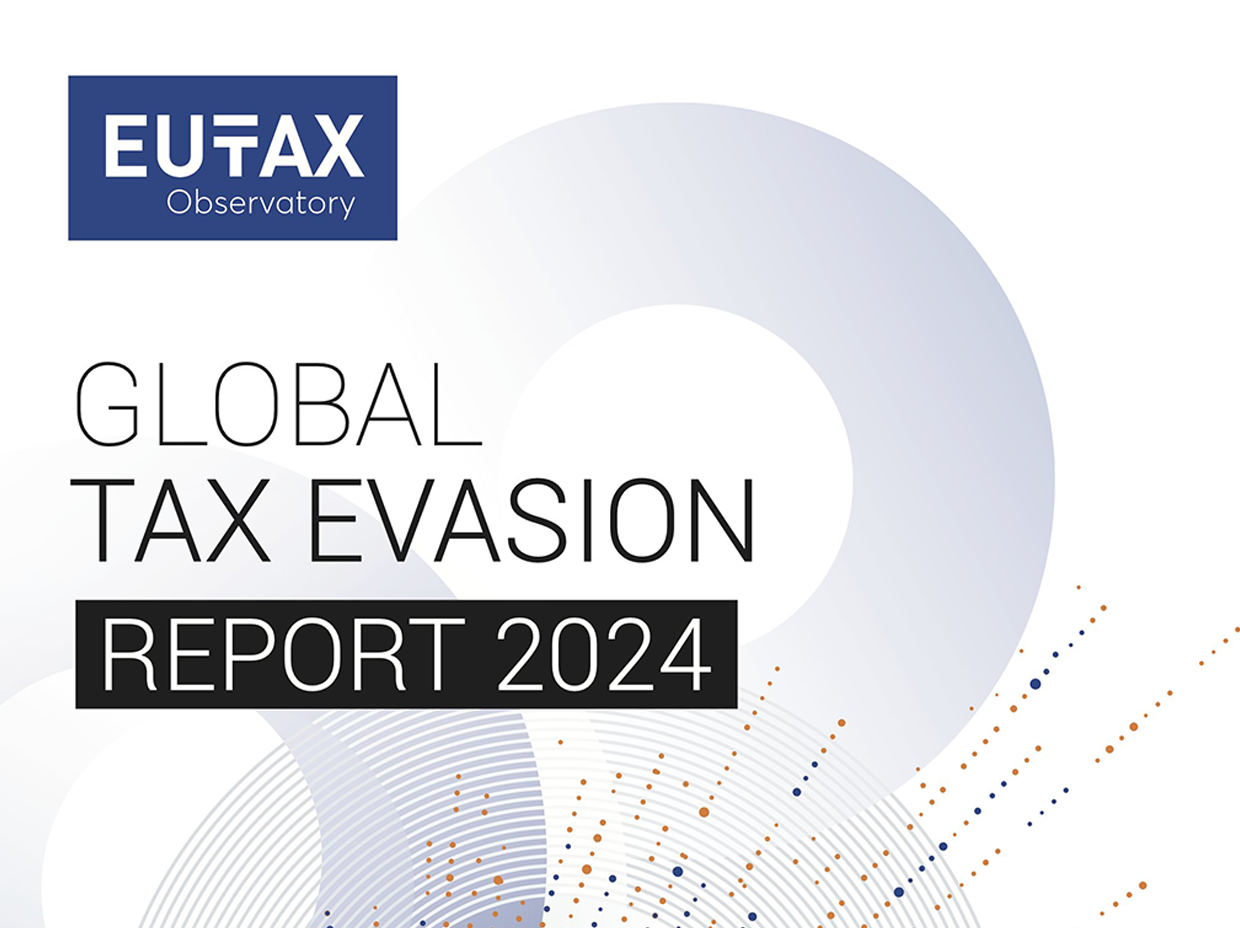European Union Tax Observatory released its ‘Global Tax Evasion Report 2024’
Over the last 10 years, governments have launched major initiatives to reduce international tax evasion.
Yet despite the importance of these developments, litle is known about the effects of these new policies.
This Global Tax Evasion report addresses these issues thanks to an unprecedented international research
collaboration and major data improvements.
We should make it clear at the outset that we do not restrict this report to the study of tax evasion in a narrow sense of fraud.

Key highlights of the Global Tax Evasion reports 2024
First, offshore tax evasion by wealthy individuals has shrunk. Thanks to the automatic exchange of bank information, offshore tax evasion has declined by a factor of about three over the last 10 years.
Second, the global minimum tax of 15% on multinationals, which raised high hopes in 2021, has been dramatically weakened.
Third, tax evasion – including grey-zone evasion at the border of legality – is increasingly happening domestically. Global billionaires have effective tax rates equivalent to 0% to 0.5% of their wealth, due to the frequent use of shell companiesto avoid income taxation.
six proposals to address the issues identified in Global Tax Evasion reports 2024
A key proposal is to institute a global minimum tax on billionaires, equal to 2% of their wealth.
estimation of the revenue potential of this measure, showing that it would raise close to $250
billion (from less than 3,000 individuals) annually.
A strengthened global minimum tax on multinational companies, free of loopholes, would raise an additional $250 billion per year.
To give a sense of the magnitudes involved, recent studies estimate that developing countries need
$500 billion annually in additional public revenue to address the challenges of climate change.
Global Tax Evasion reports 2024 establishes six new findings about the dynamic of international tax evasion and tax
competition
Finding #1: the automatic information exchange, a real breakthrough
Thanks to the automatic exchange of bank information, offshore tax evasion has declined by a
factor of about three in less than 10 years.
Finding #2: A large amount of profit shifting to tax havens, with no discernable effect of policies
so far
A persistently large amount of profits is shifted to tax havens: $1 trillion in 2022.
Finding #3: The global minimum tax has been dramatically weakened
In 2021, more than 140 countries and territories agreed to implement a pioneering minimum tax of 15% on multinational profits.
Finding #4: New forms of tax competition are emerging with adverse effects on government
revenue and inequality
New forms of aggressive tax competition are emerging that severely affect government revenues.
The ongoing subsidies race for green-energy producers may more than offset the revenue gains from the global minimum corporate tax.
Finding #5: Global billionaires benefit from very low effective tax rates
Pioneering research in partnership with tax administrations shows that global billionaires have very low personal effective tax rates, of between 0% and 0.5% of their wealth.
Finding #6: A global minimum tax on billionaires would raise large sums
A minimum wealth tax on billionaires equal to 2% of their wealth would address this evasion and generate nearly $250 billion from less than 3,000 individuals.
Recommendation of Global Tax Evasion reports 2024
- Minimum corporate tax of 25% and remove the loopholes that foster tax competition
- Introduce a new global minimum tax for billionaires equal to 2% of their wealth.
- Move towards the creation of a Global Asset Registry (International register of all wealth and assets).
- Institute mechanisms to tax wealthy people who have been long-term residents in a country and choose to move to a low tax country.
Steps taken by India to curb tax evasion:
- Income-tax Act, 1961 (Search and Seizure);
- Treaties such as Double Tax Avoidance Agreement (DTAA), Tax Information Exchange Agreement (TIEA),
- The Benami Transactions Informants Reward Scheme.
- Reduced base corporate tax for existing companies to 22 percent and new manufacturing firms to 15 percent.
